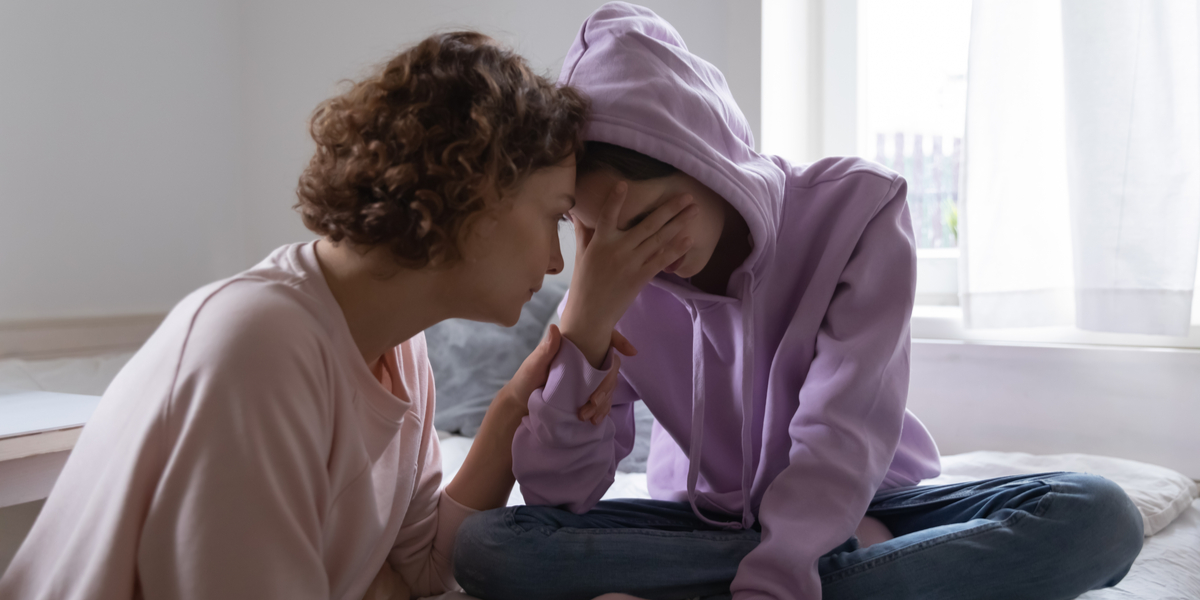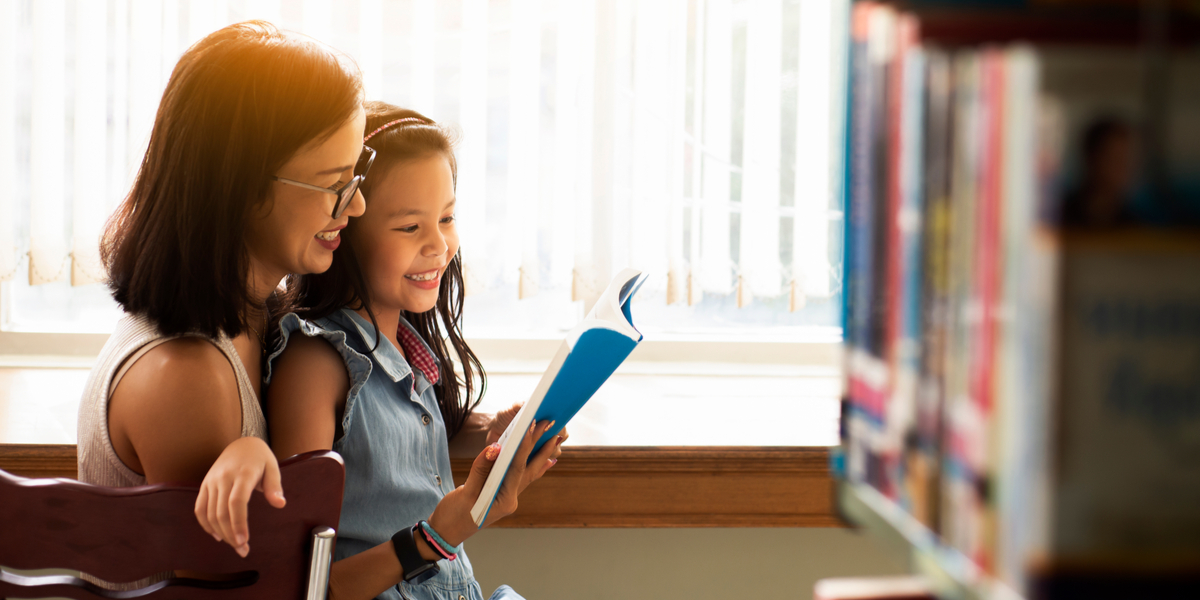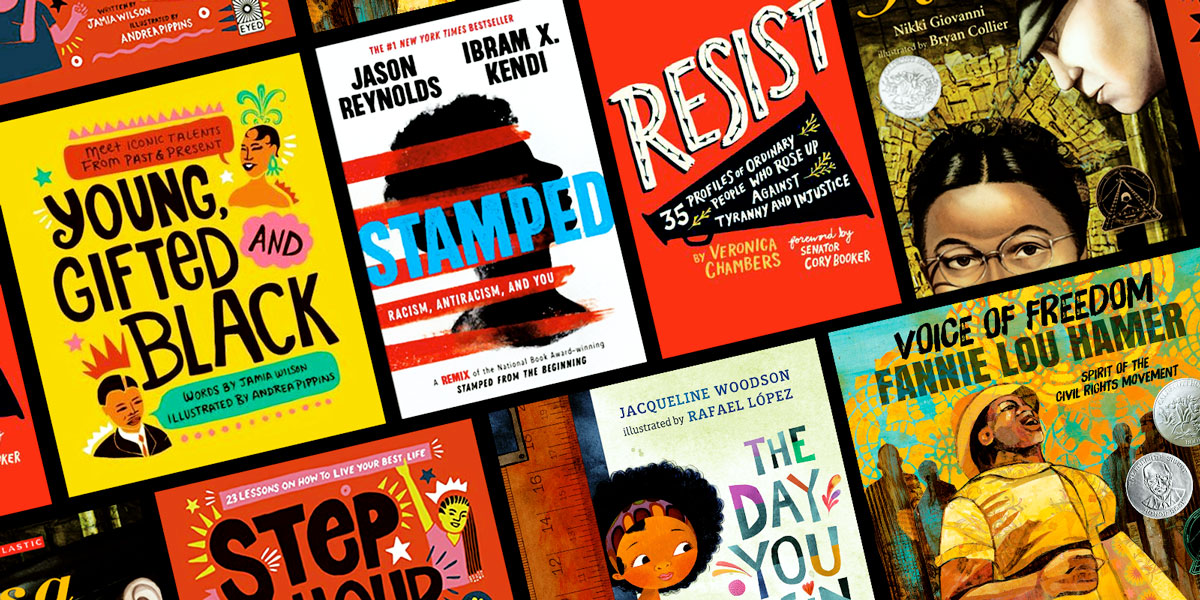
Raising Anti-Racist Kids: A Guide and Book List for White and Non-Black POC Parents
George Floyd was murdered on May 25, 2020, and we stand in unequivocal support of the protests and uprisings that have swept the US since that day, and against the unconscionable violence of the police and US state. We can’t continue with business as usual. We will be celebrating Pride as an uprising. This month, Autostraddle is focusing on content related to this struggle, the fight against white supremacy and the fight for Black lives and Black futures. Instead, we’re publishing and re-highlighting work by and for Black queer and trans folks speaking to their experiences living under white supremacy and the carceral state, and work calling white people to material action.

“I’m glad I don’t need to talk to him about it, though.”
I was picking my daughter up from a babysitter’s house. I don’t remember which police murder of a Black person it was that sparked the convo, but it was well over a year ago. I don’t remember who introduced the topic. I do remember that I mentioned how uncomfortable I am with the amount of pro-police messaging in children’s media, which took us down the path of how to talk to our kids about the police.
Our kids had both developed an interest in Paw Patrol, despite neither of us desiring our kids to watch it. My neighbor had a no screen time rule. I thought it was too much pro-police propaganda. My babysitter, whose kid played with my kid while she babysat, is a smart, politically progressive white woman. She and I agreed that it was false to teach all kids that the police would protect and help them, though our kids probably could assume that implicit bias would work in their favor. Her kid is white and mine is a light-skinned Asian.
She glanced at her kid and said, “I’m glad I don’t need to talk to him about it,” and what she meant is that she recognizes her own privilege to not have to have “The Talk” with her kid like she would if her kid was Black or brown. What she meant is that she didn’t know how to have that convo with a little kid whose limited police interactions have been friendly and relatively positive, that police don’t routinely patrol our neighborhood, that her husband isn’t frequently detained just for walking down the sidewalk in our city neighborhood. What she also meant is that she didn’t feel equipped to have the conversation or think it was her place to do so.
“I think we do need to talk to our kids,” I replied gently. “They need to know that it’s not OK to call the police on a Black person and that police can’t always be trusted.” She nodded and thought about it. It’s a conversation that white parents and Asian parents and all parents have to have as we raise the next generation or we’re never going to dismantle white supremacy. If allies to Black and brown people are serious about being anti-racist, we have to do more than chant “Black Lives Matter!” We have to start within, including within our own homes and families. Protecting our children from hard conversations about race is actively aiding and abetting white supremacy and we can’t afford to stay complicit for a second longer.
It can still be hard to know where to begin talking about race, police brutality, and Black Lives Matter, but it’s something we have to do. George Floyd’s daughter, Gianna, is six-years-old and she’s heard people in the streets chanting her daddy’s name. Whatever discomfort you and I may have about talking about this with our kids, we have to be better.
Don’t Sugarcoat the Truth

Age-appropriate conversations don’t have to be vapid. Be age-appropriate, but not so vague that they don’t understand what you’re talking about. Kids know so much more than we think they do. All that my partner and I have been talking about lately are the protests, police, and the current state of the world. It’s a lot, especially in the middle of a global pandemic, for a child to pick up through osmosis, but I guarantee you that Remi overhears us. She’s picking up a lot of info about how we’re feeling and how the world is feeling.
Over lunch this past weekend, we watched the live stream of the rally in our city as a family. Remi was annoyed because she wanted to watch her shows and because she didn’t fully grasp what folks were talking about in the speeches, but we told her it was important. I asked her after we’d watched a few people speak, “How do you think these people are feeling?” She reflected for a few seconds.
“Sad,” she replied.
“Anything else?” I asked. She paused again.
“Angry!”
“Yes, honey, that’s right. They’re sad and angry. Do you know why?”
And we had an age-appropriate talk about how people are treated differently because of what they look like and the color of their skin. We told her a man had died because the police treated him unfairly and hurt him so much that he died. We talked about protests and what the people we were watching were doing. She took it all in the way a three-year-old does, and then finished her lunch and got down from the table to go play. It’s not the last time we’ll talk about it. Knowing Remi, she’ll pop up with more questions eventually. It’s certainly not the first or last time I’ve talked to her about the police treating people unfairly.
For older kids and teens, you can be even more direct. Remember that some well-meaning people think LGBTQ issues and identities are too “adult” to talk to kids about. Remember that Black kids are getting The Talk from a very young age and seeing people who look like them hurt and dead and talked about badly on the news. Your silence is a statement on how much you care about Black lives and your children are listening.
Help Them Hold Their Fear and Anger

Your kid may react in a lot of different ways. It’s possible they’ll be worried about their Black and brown friends and become very scared for them. They may become fearful of the police. Or they may become very angry at the injustice and not know how to deal with that anger. No matter how they react, we have to be there for them to process what they’re feeling.
I’ve seen many adults in my feed taking their kids to protests and rallies, of all ages, some for the first time. You could make protest signs together and hang them in your street-facing windows. You could help your kid raise money or donate together to bail funds, Black-owned and led organizations, and social justice organizations. You could write letters to elected officials together to advocate for defunding police in your municipal budget or taking other actions being led and demanded by Black organizers.
You can read more books about racism and becoming anti-racist together. You can talk about and work on understanding your white privilege and/or anti-Blackness together. You don’t have to have all the exact right answers yourself. You just need to take steps towards helping turn anger and fear into action. You’re modeling how to be an accomplice, a person who goes beyond performative allyship to fighting alongside the most marginalized in solidarity.
Confront Your Own Biases

If you are not Black, you’ve probably been taught to not talk about racism against Black people. If you’re Asian like me, you may have just learned to not talk about race at all. If you’re a non-Black POC, you may have grown up in a family or community where anti-Blackness was the prevailing attitude. If you’re white, you have a lifetime of not being forced to confront or think about race at all. These are all huge hurdles to get over, but you can get over them.
We have been taught a racist and whitewashed version of history ourselves. Our children will likely get that same education in their classroom now. We have to do the work of actively unlearning and getting real with our history and internalized racism and our deep implicit biases ourselves as we do the work with our kids.
Studies show that kids who grow up in families who talk about race are better equipped to speak up about racism and race-related issues as adults. I know that’s like 1+1=2, but a lot of people, white people in particular, still aren’t talking to their kids about race. It’s simple math. It’s time to get over yourself and get to work.
Make Anti-Racism Part of Your Parenting Philosophy

We especially need to talk about police brutality, race, and racism right now. Beyond today, anti-racism is something that needs to be a part of how we parent 24/7. Do a literal race audit of the tv shows, books, movies, and real-life spaces your kids are regularly exposed to.
Is there racial diversity? Other kinds of diversity? Who are the main characters, the ones your kid will most identify with, in the media they consume? Are they always white? Do they perpetuate stereotypes? Who is creating the “diverse” media in your home and community? Is it by people who share the identities of the characters?
What about the places you go? Your kid’s school or educational setting? Your neighborhood? Your favorite restaurants? Your typical grocery store? How often is your kid in white-dominant spaces? How often is your kid exposed to people, viewpoints, and communities outside of your own?
If you’re a POC, how does your family talk about Black people? Is anti-Blackness a part of your heritage? For white people, uh, anti-Blackness is a part of your heritage no matter how your family votes. What are you doing to talk about race and do you do it in front of your kid?
A lot of non-Black people want to know what to do right now and are frustrated with the answer to stay in our lane. There’s actually a lot of work to do in our lane, though, and this is the lasting, long-term work that goes beyond signing a petition or sharing a social media graphic. Undoing anti-Blackness and becoming anti-racist is invisible work. No one is going to pat you on the back. It’s the opposite of performative. It’s the hardest and most impactful work of all, pulling up racism at the root, the root that attaches your own feet to the rancid soil of white supremacy.
Books for Little Kids
Something Happened in Our Town: A Child’s Story About Racial Injustice by Marianne Celano, Marietta Collins, and Ann Hazzard
Not My Idea: A Book About Whiteness written and illustrated by Anastasia Higginbotham (for white allies in particular)
The Day You Begin by Jacqueline Woodson
Sit-in: How Four Friends Stood Up by Sitting Down by Andrea Davis Pinkney
Let It Shine: Stories of Black Women Freedom Fighters by Andrea Davis Pinkney
Voice of Freedom: Fannie Lou Hamer, Spirit of the Civil Rights Movement by Carole Boston Weatherford
Rosa by Nikki Giovanni
Young Gifted and Black: Meet 52 Black Heroes from Past and Present by Jamia Wilson
Books for Older Kids
Resist: 35 Profiles of Ordinary People Who Rose Up Against Tyranny and Injustice by Veronica Chambers
Stamped: Racism, Antiracism, and You by Jason Reynolds and Ibram X. Kendi
Dear America: With the Might of Angels by Andrea Davis Pinkney
Hush by Jacqueline Woodson
Woke: A Young Poet’s Call to Justice by Mahogany L. Browne
Step Into Your Power: 23 Lessons on How to Live Your Best Life by Jamia Wilson
Books for Parents
The New Jim Crow: Mass Incarceration in the Age of Colorblindness by Michelle Alexander
How to Be an Antiracist by Ibram X. Kendi
So You Want to Talk About Race by Ijeoma Oluo
Why I’m No Longer Talking to White People About Race by Reni Eddo-Lodge
Raising White Kids by Jennifer Harvey (for white allies in particular)
Me and White Supremacy: Combat Racism, Change the World, and Become a Good Ancestor by Layla Saad
